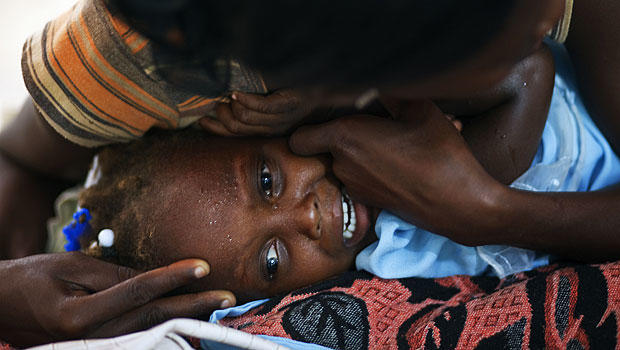Cholera Outbreaks Kill Thousands: Could Disease Spread Here?
(CBS/AP) Cholera is on a deadly rampage on both sides of the Atlantic.
An outbreak in Haiti has already sickened 3,000 and claimed 250 lives. Authorities worry that the disease could strike the capital, Port-au-Prince, where 1.3 million earthquake survivors live, many in squalid refugee camps.
On Saturday, CBS News medical correspondent Dr. Jonathan LaPook visited a hospital in the center of the outbreak. He called the scene"controlled chaos."
Cholera is also ravaging Nigeria. So far this year, more than 1,500 Nigerians have died from the disease. This is the worst outbreak of the waterborne disease in the West African nation since a 1991 outbreak killed 7,654, according to the World Health Organization.
Just what is cholera, and what makes it so deadly? And could the disease strike in the U.S.?
Cholera is caused by a bacterium called Vibrio cholera. It's marked by severe diarrhea and vomiting, which can lead to dehydration and death within hours. The disease can be managed by rapid replenishment of lost fluids, either by drinking special water solutions or taking them intravenously.
The disease spreads when people eat or drink contaminated food or water, but clean water is often in short supply in places like Haiti and West Africa.
Experts say cholera is unlikely to strike in the U.S., thanks to our clean water and sanitation.
"There is a very low likelihood that cholera will strike here," Dr. David Hooper, assistant chief of the division of infectious diseases at Massachusetts General Hospital in Boston, told CBS News.
No cholera vaccine is available in the U.S. But Americans planning travel to places where cholera is endemic should be careful to avoid water that might be contaminated, says Dr. Hooper. That means avoiding uncooked foods and vegetables and drinking only from bottled or canned beverages - and no Ice cubes.
MORE HEALTH CONTENT FROM CBS NEWS:

